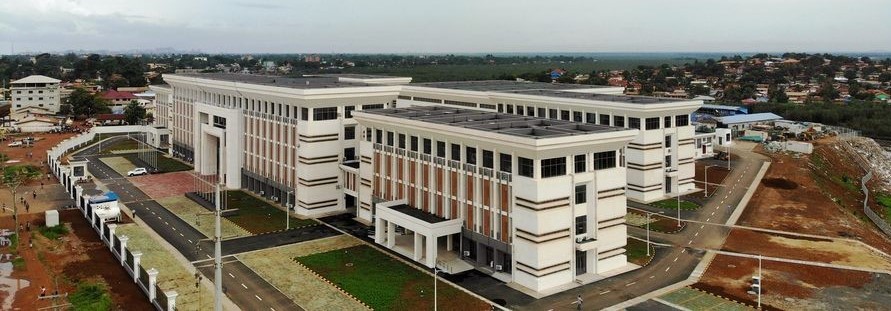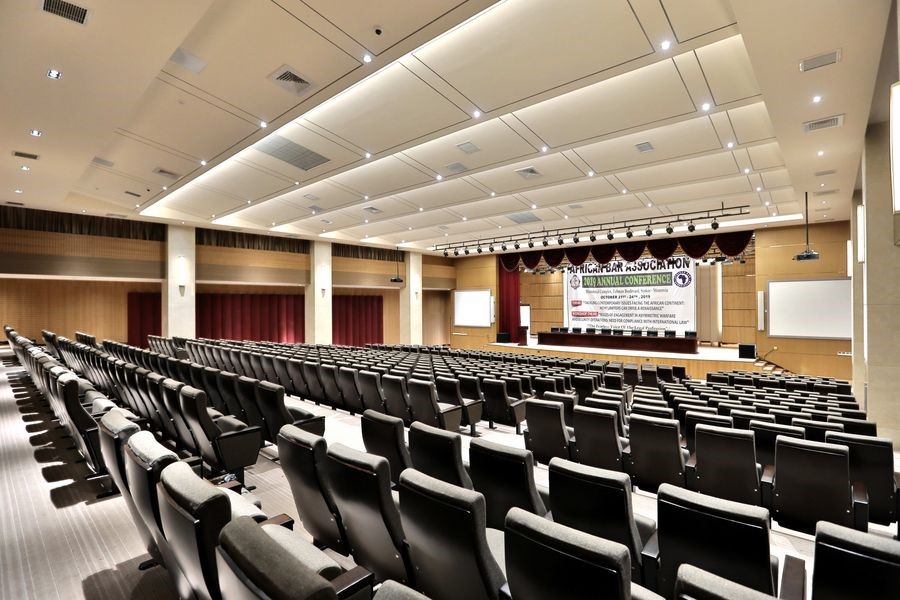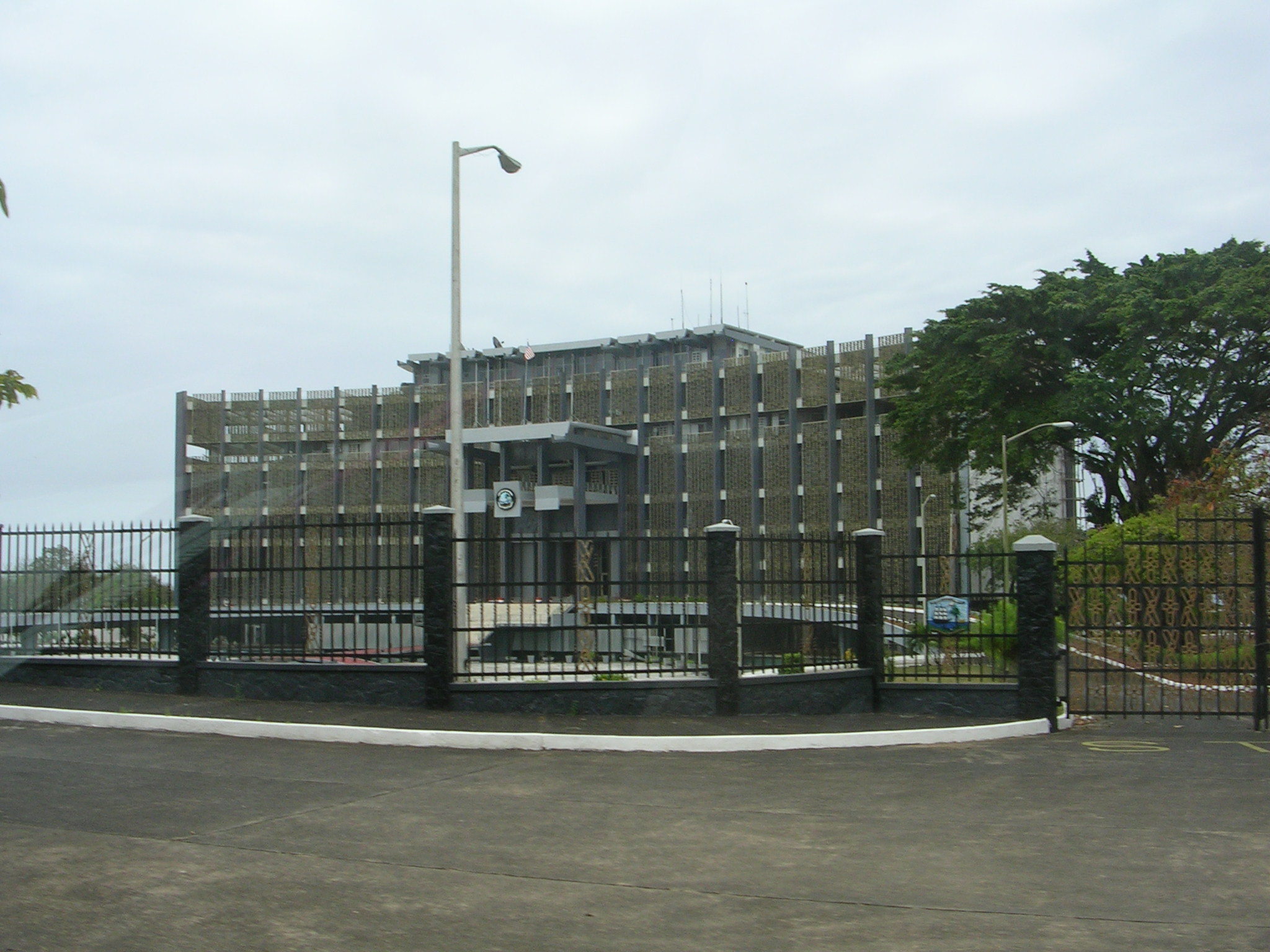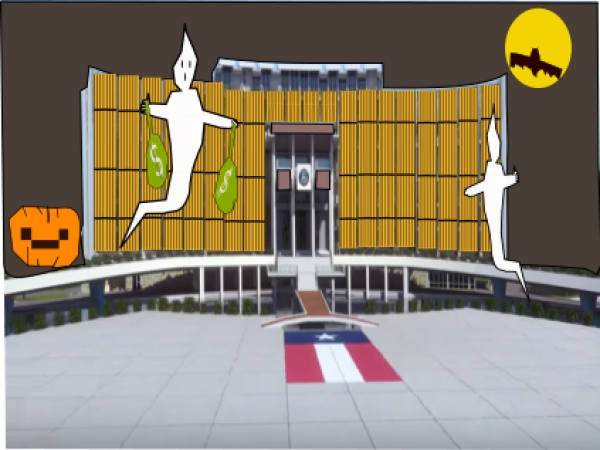By Gerald D. Yeakula, Esq.
This is no fiction. The reality is an Executive Mansion once magnificent and idyllic, the heartbeat of the Liberian State, has now earned the dubious reputation as an abode where Presidents do not end well. And now, others ostensibly do not want to dare fate. So great is the infamy that reports of the place being both haunted and jinxed have made it on the pages of The New York Times. Here, however, we will spare ourselves the spooky details of the Executive Mansion to hone in on an equally, or even more, critical piece of the intricate puzzle: how over a period of just under 15 years, this “haunted house” has swallowed up millions in taxpayers money with zilch results. Budgets after budgets with nothing to be seen. If you thought the haunted tale is by itself intriguing, float with us into the ghostly budget ride below.
For nearly two decades, the Liberian Presidency has been displaced. It began on the Independence Day Celebration of 2006 (July 26) when the fourth floor of the Mansion burst into flames. While many believed that the fire was a result of an arson attack, Forensic investigators blamed the cause of the fire on electrical fault. The Mansion has remained unoccupied ever since with the Presidency taking refuge at the nearby Ministry of Foreign Affairs. In the wake of the incident, extensive renovation works commenced to restore the presidential palace to a status befitting of the Chief Executive. Fifteen years later, repair works are yet to be completed despite huge financing, and the project is likely to be recorded as the most expensive renovation in all of Liberian history. And West Africa? Who knows? Evidence available to us indicate that a jaw-dropping Forty-Two Million Nine Hundred Ninety-Five Thousand Two Hundred Seventeen United Sates Dollars and Twenty-One Cents (US$42,995,217.21) have been spent on the renovation from 2006 to present. With Four Million Dollars (US$4,000,000) proposed in the 2022 draft budget and Five Million Seven Hundred Sixty-Thousand United States Dollars (US$5,760,000) projected to be spent in 2023 and 2024, the cost of the project can properly be placed at Fifty-Two Million Seven Hundred Fifty-Five Thousand Two-Hundred Seventeen Dollars and Twenty-One Cents (US$52,755,217.21) holding all factors constant. This amount comes very close to what was used to construct the Ministerial Complex in Congo Town.

The Ministerial Complex constructed by the Chinese is a modern office complex that can accommodate 1,300 people for 6 ministries including the Ministry of Education, Ministry of Agriculture, Ministry of Labor, Ministry of Commerce and Industry, Civil Service Agency, and the Ministry of Gender, Children, and Social Protection. Credit: Xinhua

Inside the building, there is a multi-function hall for 400 people and a large conference hall for 500 people, as well as related sets of facilities. The project commenced on 25 October 2016 and was completed on 24 April 2019. Credit: Xinhua
US$53 million was used to build the entire Ministerial Complex from ground up. Strangely, similar amount is being spent on renovating the Executive Mansion alone. Something just doesn’t seem right. One quickly finds upon deeper inspection that monies reported to have been spent on the mansion didn’t really end up there. But while we can be certain that the monies did not hit the renovation, concluding on where they landed is not as easy. In early 2016, former Liberian President Ellen Johnson-Sirleaf requested the General Auditing Commission (GAC) to conduct an audit into the Executive Mansion renovation project. Several irregularities were discovered. The renovation was supervised by the Ministry of State and not the Ministry of Public Works which is the statutory body responsible for the construction and renovation of public buildings. The Ministry of Public Works initially supervised construction of the Mansion in 1960. It was further observed that the Ministry of State for Presidential Affairs did not provide supporting documentation for over 5 Million United States Dollars expended for the fiscal years 2012-2014. Additionally, Payments were made to the contractor, CNQC Qingjian International, without evidence of the reports and certificates of completion. Questionable payments were also made to other contractors associated with the project. Further, the Procurement Committee of the Ministry of State was not involved with the contracting process.

The Executive Mansion has been undergoing renovations for nearly two decades.
On July 1, 2015, after paying over 10 Million United States Dollars to the contractor CNQC, the Government of Liberia and CNQC Qingjian International executed an MOU which terminated the Executive Mansion Renovation Project contract. Additionally, the Government and Qingjian International waived all claims against each other in the interest of “diplomatic harmony”. Further details of the MOU remain undisclosed. Meanwhile, the waiver meant that the company was absolved of any and all liability or damages arising out of the contract. The Government of Liberia ought to have known, in the first place, that engaging the services of the Chinese state-owned company invariably draws China into the picture and that same would have presented great difficulties for contract management. And yes, it did. Or was hiring the company a deliberate attempt to shield misuse of public funds? In the end, millions of Liberian tax dollars were wasted and remain unaccounted for.
Many have been left staggered over the waste, impunity, and unproductiveness associated with the marathon renovation. As if the GAC audit report on the project was not enough, a committee dubbed Special Presidential Task Force with Cllr. J. Fonati Kofa (then Minister of State without portfolio and now Deputy Speaker of the House of Representatives) as Chairman was mandated to investigate. The investigation report was submitted to former President Ellen Johnson-Sirleaf on June 21, 2017. Details have not been made public and, yet, no one held accountable. Another committee was setup in September 2019, this time by the House of Representatives. The Committee disclosed that it was in receipt of the Kofa Report and found it to be “quite revealing and informative”. But the Committee also seems to be headed nowhere. In May this year, the Committee recommended that Samuel D. Tweah, Minister of Finance and Development Planning, be summoned by the Plenary to explain his refusal, for nearly two years, to provide information requested. There is no record that Minister Tweah was either summoned or held in contempt. Indeed, the third investigation in the matter is set to fail. Representative Vincent S.T. Willie of Grand Bassa county had requested the House to setup a Special Committee to probe the project. In his communication to the House, he described the project as a “political dragon that is eating the Liberian people’s money”. But the Special Committee has made some interesting finds. It says that CNQC lacked the qualification and experience to carryout the renovation, and that when its contract was terminated, CESAF Liberia Ltd was hired at a cost of US$ 50,522,521.61. For the second time, the contract is not managed by the Ministry of Public Works. Rather, the contract is “controlled by the Ministry of Finance”. The Committee also observed that between December 2018 and May 2019, the Weah government paid CESAF Liberia Ltd. the sum of 8.9 million United States Dollars (Eight Million Nine Hundred Thousand United States Dollars), and that there is no evidence that CESAF Liberia Ltd. had done any appreciable work. With all these findings, however, there is no record that the House acted on the recommendation of the Committee to summon the Minister of Finance to answer questions. All signs point glaringly to the failure of yet another investigation into the mystery surrounding funds spent on the project.
On November 30, 2021, an array of Government officials led by President George M. Weah visited the site to inspect on-going works. There was no mention by any of the Senior officials, making remarks, of accountability for funds spent on the project. The Weah administration looks set to claim credit for renovation of the Mansion. But will it muster the courage to go after the wasted millions? Does it even matter at all? Or does investigation and prosecution of misuse of funds meant for the Mansion attract unfavorable consequences? Or did the funds get taken away by ghosts that reportedly roam the presidential palace? Oops…I forgot. If the Mansion is haunted, as is reported, then we may just need our own Ghostbusters to banish the ghosts and break the curse. But until then, we must make use of what we have by ensuring that investigative reports related to the quagmire are treated with utmost importance and deserved attention. We cannot rejoice in the completion of the mansion with millions of dollars lost. A true celebration can only happen the lost millions are found and those liable are penalized.

